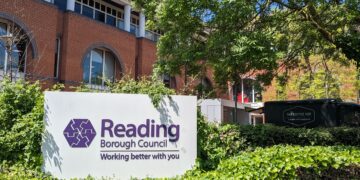Last October, at a meeting of the full Council, I raised concern that the government had ended the £20 per week uplift in universal credit (UC), and how it was unacceptable that being in work did not enable people and families to be able to afford the basics and have a decent standard of life.
Over 40% of UC claimants are in work.
I pointed out that the future of the country was being negatively affected when so many children are living in poverty given the potential harm this is likely to cause to their health, well-being, and economic potential.
The number of children living in poverty was already 4.3 million and was expected to grow by up to 290,000.
The rise in the cost of living was already beginning to hit with the choice of eating or heating a reality for many. It’s now becoming a crisis.
Now the Joseph Rowntree Foundation (JRF) are saying that, with benefit levels set to rise by 3.1% (a real terms cut when inflation is forecast to hit 7% by April), a further 400,000 people will be pushed into poverty.
All this coming just as energy costs and food costs are set to rise, alongside the Tory government’s big increase in National Insurance contributions.
A separate analysis the New Economics Foundation in March 2022 found that over a third of households, 23.4 million people, will be unable to afford the cost of living by April 2022.
This figure includes nearly half of all children and almost all (96%) children living in families out of work as well as eight in 10 in single-parent households and four in ten in working families.
The impact on so many children is a big concern for me.
There is no direct correlation between being in poverty and children coming into care, but it is clearly a factor that can increase the pressures on life at home whatever the make up of your family.
Society must take responsibility for at least ensuring that children have access to a home, food, health services and education – that is why we all pay our taxes and expect the government to ensure these basic rights are accessible to all.
I take my role as lead councillor for children’s services very seriously and work with Brighter Futures for Children to safeguard children from harm, neglect, and abuse, to support families who are struggling and need help to parent their child or children, particularly where that child may have additional educational needs and/or a disability.
This is made more difficult when basics needs are not being met.
Things have been made worse by the impact of covid, for example, some babies’ development will have been delayed due to lockdowns, children’s education will have been affected, and there has been a significant increase in mental health issues as has been widely reported.
The Council has provided more funding to Brighter Futures for Children to address these issues and the Council has looked to do what it can to help with food vouchers, extra money for heating costs and additional council tax support but more needs to done by this government.
As the JRF suggest, it could choose to increase benefits by 7%, which would cost £7.5 billion – a great deal of money, but remember the government spent £37 billion just on test and trace.
The government could delay the National Insurance rise, it could cut VAT on fuel, it could collect a windfall tax from energy companies, but so far it is resisting these bigger answers and is instead just cutting £150 for some council taxpayers – which I welcome, even though it is poorly targeted to help those who need it most.
The energy cost loans will just make things worse for the less well-off in our society. Radical thinking is needed.
Cllr Liz Terry is ward councillor for Minster Ward, and lead councillor for children’s services on Reading Borough Council
























